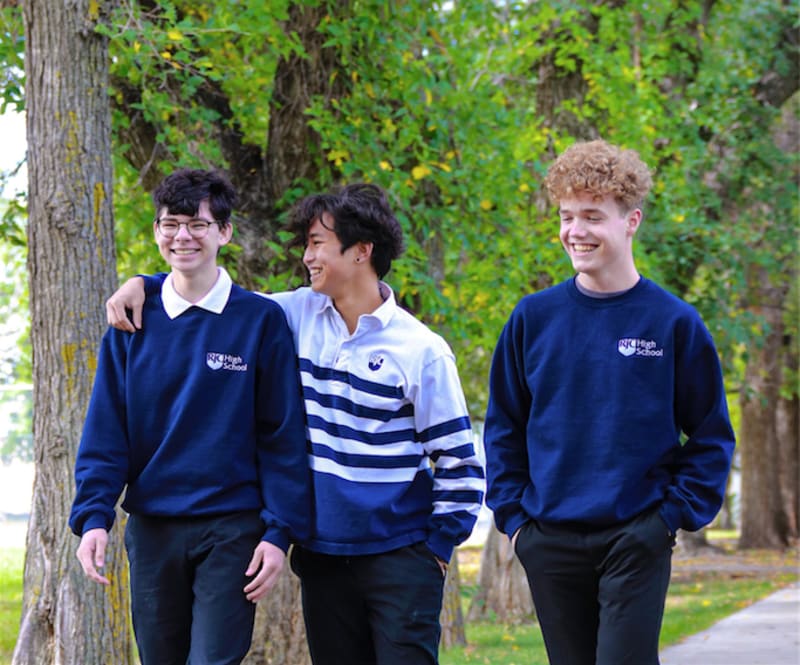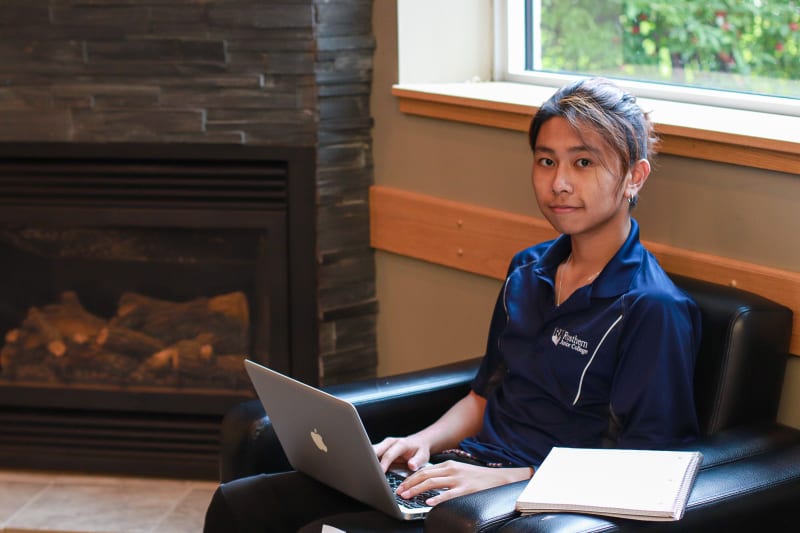What does it mean to be socially engaged?
Rosthern Junior College High School has been answering that question for more than 100 years.

High school students in the 2020’s are in one of the most socially engaged generations in history, connected through social media and other digital platforms and inspired by movements to end institutional racism, gun violence, climate change, and more. But some schools have been pushing their students to ask foundational questions about service and ethics for much longer: for instance, Rosthern Junior College High School in Rosthern, Saskatchewan has been doing so for over 100 years.
Founded in 1905 by the recent Mennonite immigrant community in Saskatchewan, Rosthern Junior College High School has advanced its approach to questions around community, identity, faith, and responsibility over the years. Still formally supported by Mennonite Church Saskatchewan and Mennonite Church Alberta, RJCHS now instructs from an Anabaptist-Christian faith tradition for a diverse community of faculty and students, including teachings from Indigenous communities of the area and involving a cohort of international students (around 15% of the student population come from outside of Canada).
“It has evolved into this really great place where students from anywhere, all over the world, from different cultures, can explore what it means to belong, to have an identity, and to hold values,” says Alex Tiessen, RJCHS Director of Admissions and Development.
“The mission statement of the school is to encourage students to develop as leaders for lives of faith, service, and peacemaking, but those can all mean different things to different people. What we're encouraging students to do is to come in and ask those questions around ‘What does it mean to be faithful people in the world?’, whatever that may mean for you,” he says.
In addition to the core academic subjects of Saskatchewan’s high school curriculum, RJCHS places specific focus on this area of development through three structured programs involving a deep level of out-of-classroom learning like volunteering days and trips, that build on the teachings of the previous year: Imagine in Grade 10, which focuses on peace-building, Thrive in Grade 11, which focuses on building relationships, and Explore in Grade 12, which builds leadership skills.
“Working with an age group that is maturing as teenagers, these programs work very well. That's an age where students are starting to come into themselves and explore who they are, especially as we think a little bit about the next step, like university,” Tiessen says. “As an example, as we’re introducing some of these social justice ideas, like food security, it’s a natural progression from thinking about it, to doing something about it, and exploring how to make it part of your life.”
As the world has seen over the past few years, students have unprecedented access to networks, information, and a culture of activism around many issues of equality, social justice, and political action—with its years of experience, RJCHS has woven these themes across subjects like history, language, and science into leadership programs, trips into affected communities from local as well as international areas, student retreats, and school chapel. By aligning academics and the development of faith-based values, Tiessen says the result is a student who is able to find their avenue into the working world that also allows them to leave a positive impact.
“For instance, one student in Grade 12 is currently considering going into international development studies in university and taking some of these lessons that we've already been talking about for three years and pushing it to that next step,” he says. “But students choose to pursue lots of different fields depending on how they view the world—maybe there’s a different organization they’ve discovered or they want to be on the business side of things. Because there are threads across three years of these ideas and lessons, they're able to take it with them.”
While there is a deep history within the programs at RJCHS, Tiessen says the impacts between the Imagine, Thrive, and Explore programs and the students who go through them go both ways; they continue to be shaped by today’s youth. In fact, the groundswell of activism and deep thinking around these issues across the world is a good sign they’re on the right track. A group of Indigenous students at RJCHS even took it upon themselves to plan several events for the first ever National Day for Truth and Reconciliation this year.
“When kids grow into themselves and who they want to be, and you see them take that next step to do something, that is really rewarding. It reminds us of why we're here and why we do what we do, that the work we're doing matters,” he says.

•
Regina Christian schools
Find the top private and independent Christian schools in Regina (May 16, 2024)
Concord private schools
Find the top private and independent schools in Concord (May 16, 2024)
Kimberley private schools
Find the top private and independent schools in Kimberley (May 16, 2024)
Riverview private schools
Find the top private and independent schools in Riverview (May 16, 2024)
Balancing academics and social-emotional well-being
The art of providing holistic learning environments for teens (May 13, 2024)